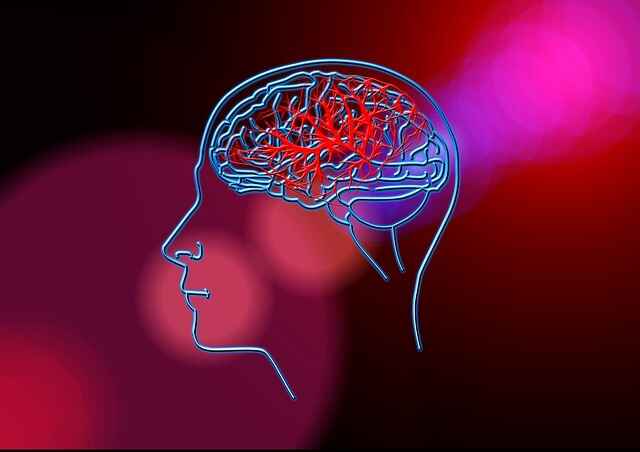What is Pineocytoma?
A pineocytoma is a tumor of the pineal gland, a tiny organ in the brain responsible for the production of melatonin (a sleep-regulating hormone). It is composed of cells that form huge pineocytomatous rosettes, pleomorphic cells with granulocytic differentiation, or both. Pineocytomas are also known as pinealomas.
Pineal tumors are frequently associated with hydrocephalus or an increase in fluid pressure within the brain. Pineocytomas most commonly arise in adults as a solid mass, though imaging of the brain may reveal fluid-filled (cystic) areas. Pineocytomas typically grow slowly and rarely spread to other body regions. (Source)
Also Read: All About Glomus Jugulare: Types, Symptoms, Causes, Prevention
Types
Pineal tumors can be of a single type or a combination of several. They are arranged according to grades I, II, III, or IV. The growth is the slowest in Grade I. The fastest-growing and most aggressive grade is IV. Pineocytoma is also included in one of the types of Pineal gland Tumors (grade I or II). Pineal gland tumors could be any of the following:
- Pineal parenchymal tumors – These are of the intermediate level (grade II or III). Pineal parenchymal and papillary pineal tumors can develop at any age.
- Papillary pineal tumors – These are of the intermediate level (grade II or III).
- Pineoblastoma– These are extremely rare, aggressive, and rapidly expanding (grade IV). It’s nearly usually cancer. These tumors primarily affect people under the age of 20.
- Mixed pineal tumors – This is a mix of slow and fast-growing cell types.
Causes
Regarding pineocytomas, no particular genetic alterations have been discovered. Though research is still going on, Pineal tumors have no known cause as of yet. Your genes and environment may both have an impact. Exposure to radiation or genetic issues may raise the risk in some circumstances.
Risk factors
There have been some linkages related to chromosomal abnormalities, but no risk factors have been established. However, mutations in the RB1 and DICER1 genes can raise the risk of developing pineoblastoma. Because mutations are inherited from parents, pinealomas may be genetic.
Exposure to radiation and some chemicals are also a potential risk factor.
Symptoms
Pineal tumor symptoms vary depending on the size, location, and type of tumor. Smaller tumors rarely cause symptoms. Tumors can press against adjacent structures as they develop, causing increased cranial pressure.
The following are signs of a pinealoma:
- Headaches
- Nausea
- Vomiting
- Vision problems
- Feeling tired
- Irritability
- The trouble with eye movements
- Balance issues
- Difficulty walking
- Tremors

Diagnosis
Your doctor will examine you and inquire as to when the symptoms first appeared to determine whether you have a pinealoma. They will also examine your medical background and inquire about any family relatives you may be aware of who have pinealomas.
Your doctor may do a neurological examination to evaluate your reflexes and motor abilities in light of your symptoms.
- The most significant imaging study is magnetic resonance imaging (MRI) of the brain. It will show the tumor’s location, size, and shape.
- The visual field exam assesses your central and peripheral vision. Your doctor will also examine your eyes for optic nerve edema, which might indicate increasing pressure in your skull.
- A biopsy is often required to determine the type of tumor. This region is home to more than a dozen different forms of tumors.
- A lumbar puncture collects a sample of cerebrospinal fluid (CSF) to be tested for tumor cells by inserting a needle into the spinal cord.
- Blood tests can be used to measure the quantities of chemicals in your blood, such as melatonin.
- Some pineal tumors have high amounts of specific chemicals (Beta-HCG, AFP, and CEA), which can be detected in cerebrospinal fluid and/or blood. If cancer is found, a surgical biopsy may not be required.
Treatment
The treatment for your pineal tumor will be determined by its size, location, kind, and grade. It will also depend on if the tumor is causing problems by pressing on your brain and whether it has progressed to the central nervous system (CNS).
A pineal tumor is frequently removed surgically. After surgery, you can sometimes need radiation therapy or chemotherapy. Many tumor forms require both chemotherapy and radiation therapy.
To drain excess Cerebrospinal fluid, a tiny plastic tube (shunt) may be inserted into your skull. It is used to drain CSF from the brain. This helps to reduce intracranial pressure (ICP) and alleviate symptoms.
When do we see Doctor?
You should first consult your primary care physician. He or she may then recommend you to a specialist in brain disorders. A neurologist, neurosurgeon, or neuro-oncologist might be in charge of this.
Your doctor will discuss your past medical history, and that of your family, as well as the current symptoms you’re experiencing. A physical examination by your doctor will involve a neurological examination. Your reflexes, muscle power, eye and mouth movement, and coordination may all be evaluated by your doctor.
Prevention
Some persons, however, may choose to restrict their intake of fluoride and commercial calcium supplements to potentially reduce calcifications on the pineal gland. This strategy is not effective in people by researchers.
Also Read: Prostate Cancer: Symptoms, Causes, Risk Factors, Diagnosis, Prevention, Facts





